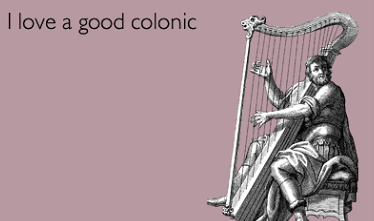Well folks, this is the end of the line.
The VB6 experiment is officially over.
If you don’t know what I’m talking about, four months ago I decided to try a different approach to eating. This approach “Vegan Before Six,” was entirely as prescribed by Mark Bittman, the New York Times food writer in his excellent book of the same title.
And the approach could not of been simpler. Eat a vegan diet with no refined carbohydrates or processed foods before 6 o’clock at night every day. After six I was on my own.
Actual VB6 dinner…
And I wrote about the experiment, complete with my monthly weigh ins in these posts:
- https://www.milesdividendmd.com/why-should-you-care-about-my-diet/
- https://www.milesdividendmd.com/weighing-in/
- https://www.milesdividendmd.com/grains-addiction/
- https://www.milesdividendmd.com/im-back/
And the experiment was actually a success. I never felt like I was dieting. My food habits became profoundly more healthy. And I even lost significant weight.
I will admit that I was a little concerned getting on the scale yesterday morning to check my monthly progress. After all, the month prior I had lost a surprising amount of weight (due mostly to stress at work.) So I was concerned that this would be my first backslide month where I would maybe gain a pound or two.
So is that why the experiment is over? is this the case of “one little setback and I throw in the towel?”
Not really. I ended up losing a pound last month and I’m down to 194.6 pounds (9.4 pounds down since the start of the experiment if you’re keeping score.)
That was a pleasant surprise.
No, the experiment is over because it’s not really an experiment anymore. There’s nothing to report. This is how I eat now, and how I plan to keep on eating going forward.
So for me VB6 has been a definite game changer.
Here, then, are my final thoughts on this approach and why it worked for me, and why I’m not giving it up anytime soon.
And more importantly here’s why I think this pursuit of a healthier diet is intricately related to the pursuit of financial independence.
Simple But Hard
The evidence based prescription for a better diet is not so controversial. We should eat more vegetables and fruits and less meats. We should eat more whole foods and less processed foods. And we should eat smaller portions. The problem of course is that even though the concept is simple the execution is difficult. Making the right choice actually involves thousands of “right” choices each and every day.
Similarly simple, is the wisdom of investing well. One only needs a well diversified mixture of index funds with an appropriate risk exposure that is rebalanced at regular, predetermined intervals.
So there you have it, eating well and investing well are both simple conceptually and hard behaviorally.
The Primacy Of Books
So how do you go about executing something that is “simple but hard ?”
By definition it’s not easy, (it’s hard) but the first step is that you’ve got to read.
Fortunately there’s plenty of evidence out there to sink your teeth into.
In his book, Bittman does a nice job explaining his justification for this approach. More importantly he keeps it simple, and realistic for people who love food. There is no demand for you to eat like a caveman. (A caveman who conveniently has coffee, grass fed butter, and a blender handy to whip it all up into a frothy emulsion!) you needn’t give up vegetables and fruits (or really anything.) You needn’t count calories or turn each meal into a spreadsheet. You needn’t exchange real and pleasurable food with artificially engineered nutrition. You simply limit your options to healthy plant based whole foods before 6 o’clock each day.
Similarly reading evidence-based books on investing allows you to understand how things like diversification, low costs, rebalancing, and factor tilting, lead to excellent results over time with minimum effort. More importantly these books give you the tools to avoid making the common mistakes that we as humans are almost genetically predisposed to make.
The Complete Absence Of Snake Oil.
VB6 taught me an important lesson which is that to eat well (and lose weight) you don’t have to take any shortcuts. You don’t have to take a pill. You don’t have to undergo a “cleanse.” There is no need for hypnotism. There’s no need for esoteric compounds extracted from Himalayan berries. Fasting is not necessary and food need not go anywhere but in your mouth.
Not part of the VB6 magic…
Similarly there are no honest shortcuts to wealth with any probability of success. And the winning formula is as basic as it is profound.
Save more. Invest your savings passively in low-cost index funds. Rebalance periodically.
No need for leverage. No need for predictive models. No need to trust your gut (or not trust your gut.) No need for supercomputers. No need for well placed high-speed cables to allow for high-frequency transactions. No need for patented algorithms. No need for paid newsletters with fancy stock picks. And no need for expert advice or handholding.
There is some part of us that always wants to believe that there’s a shortcut. That an expert will help us. But the fact remains that no one cares about our own money as much as we do. And if we want more wealth we simply have to save more of our income.
And in both cases I think it’s important to remember that the primary reason that snake oil salesman sell snake oil in the first place, is to make your money theirs.
The Compounding Effect Of Small Efforts.
Perhaps the best part about the weight-loss on VB6 is that it is slow.
By simply eating delicious whole foods like beans and whole grains and vegetables and fruits and nuts for breakfast, lunch, and snacks, you are able to avoid many of the landmines that can sink any dietary campaign. The midday snacks of refined carbohydrates (chips, candies, breads, pastries, soda) cease to be options for you and so you fill up with other less caloric, more filling, stuff.
In doing this you probably miss out on 100-500 kcal a day that you would’ve otherwise eaten.
And this deficit imperceptibly adds up over time into grams, then ounces, and finally pounds of weight loss.
There is no sudden dropping of weight, and no corporal sensation of deprivation. In fact all there is is the probability that you’re eating a little bit less in calories each day then you otherwise would have.
And in this way it is sustainable. It’s not really a diet at all. It’s just a smarter way of eating.
Similarly the dream of early retirement is not often the story of lottery winnings or successful startups. There are usually no eureka moments.
There are just simple repetitive acts of choice, over and over again, not to spend money on things that don’t bring happiness.
Just like potato chips don’t make us full (until it’s too late) thoughtless spending usually doesn’t really make us happy (at least in comparison to the freedom that it costs to spend that money.)
And by choosing over and over again to value our own money primarily for the freedom that it can provide, as opposed to for the disposables that it can buy, we eventually find that our financial needs shrink. And when our needs shrink, our surplus grows. And when our surplus grows, financial pressure dissipates. And in the absence of pressure there exists the potential for freedom and happiness.
So yeah, the VB6 experiment has ended. But this way of eating will go on for me.
In this way it seems that eating well and pursuing early retirement were two sides of the same coin for me.
In both cases early experimentation brought results and the results were positive. And because the results were positive, two things happened naturally.
The experimentation ended.
and
The experiment was replaced by a good habit.



5 Responses to “Ashes to Ashes”